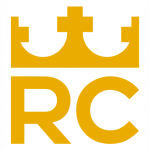

 Detail from Ezekiel’s Vision of the New Temple by Donald Jackson, Copyright 2005, The Saint John’s Bible, Saint John’s University, Collegeville, Minnesota USA. Used by permission. All rights reserved.
Detail from Ezekiel’s Vision of the New Temple by Donald Jackson, Copyright 2005, The Saint John’s Bible, Saint John’s University, Collegeville, Minnesota USA. Used by permission. All rights reserved.
The Certificate in Theology and Interreligious Engagement is a one-year, seven-credit courses in Christian studies, can be taken on a full-time or part-time basis. The certificate must be completed within four academic years of first registration. Full-time students (taking five 0.5 FCE courses a semester) will be able to complete all requirements within two semesters. Students are required to take a minimum of 1 course (0.5 FCE) each Fall and Winter semester, and be registered in consecutive academic years until completion, with the exception of approved Leaves of Absence. All students are required to maintain an electronic portfolio that documents their progress through their programs. Students in the certificate program are not permitted to take graduate-level (TST 5000s and 6000-level courses).
This Certificate program requires seven courses (7 X 0.5 FCE) in Christian studies.
One course must be taken from each of the groupings of courses:
Course selections must explore 3 religions, one of which must be Christianity. Students must take a minimum of 1 course in each of the 3 religions.
Students with no previous background in the study of theology, religion, or a cognate discipline will be required to take a foundational theology course (normally given the numeric code 1101) as one of their courses.
Successful completion requires a passing grade of B- or better in each of 7 course units, and an overall course average of B-.
Applicants must have a bachelor’s degree from a recognized university, college, or Indigenous Institute with a CGPA of 2.7. Normally this should be a Bachelor of Arts degree with a concentration in a field of the humanities or social sciences. Where applicants have a different post-secondary background, TST may require them to begin their conjoint Certificate with courses that will build their skills of research, critical thinking, and expository writing.
Application materials common to all certificate programs, basic degrees, and ecclesiastical degrees (see Admissions Process), plus/and more specifically: